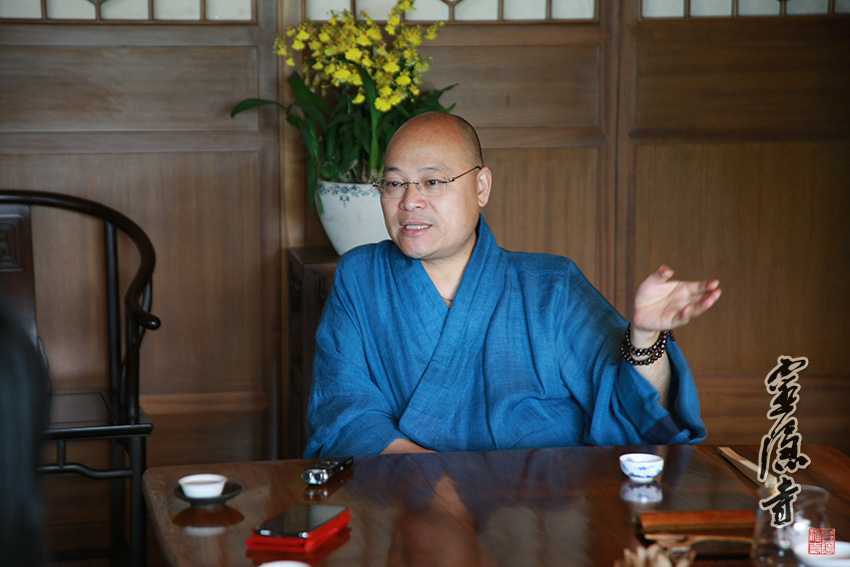
Abbot Guanquan of Lingyin Temple
The June 2013 Issue of CEO Club, Abbot Guangquan was interviewed for the feature article in which Master Guangquan discussed how modern Buddhism and venerable masters can adapt to the contemporary world as trend leaders; how should modern enterprises develop soundly by utilizing ideas from Buddhism for management as well as establishing corporate cultures.
Abbot Guangquan describes in the article that in Sui-Tang Dynasty, the Guanyin Bodhisattva was depicted as a bearded man, a masculine figure. After the Song Dynasty, however, the image of Guanyin Bodhisattva gradually evolved to the feminine one we recognize now. This transformation was due to the rising number of women followers at that time period, illustrating that the development of Buddhism should accommodate to the peoples’ needs, to advance along with the current of the times and not against it. In the present era, Buddhism should advance along with contemporary environment and into the market economy, not against—through trend leading—to stand the level of morals and ethics, enlightening the people and purifying the mind and heart.
In regard to business management, Ven. Guang Quan used the doctrine of Karma as theme for Dharma discussion. Entrepreneurs should treat employees as they were brothers and sisters, just like all creatures are equal. In return, they gain employees’ loyalty and gratitude, thus creating a more meaningful and successful organization.
Many entrepreneurs are concerned with obtaining inner tranquility and peace in the competitive society, to strive towards Chan (Zen). Primarily, one must free the mind of polluted thoughts, benefits, and desires. With that, one shall ultimately achieve the state of 'Buddha in the heart."
In Abbot Guanquan's talk, he quoted the proverb “Moon waxes only to wane, water brims only to overflow" to draw focus on the natural cycle of decline right after flourish. As wealth is accumulated at a peak level, an active approach should be taken to contribute the benefit back to society. This process does not only balance the sense of self but also result in new perspective for growth. If wealth is only accumulated without such balance, this wealth is just a symbol without much purpose. Given the natural cycle of decline-after-flourish, the wealth may very well diminish or plummet, resulting in a position farther deviated from success, farther from the purpose and balance.